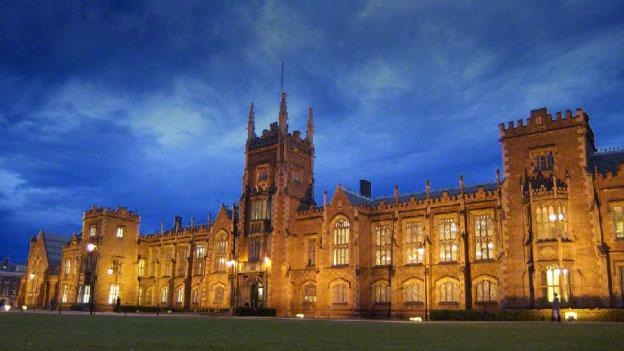In an attempt to address the funding gap in Northern Irish higher education, Queen’s University Belfast have called for an increase in student tuition fees, a document obtained by the BBC reveals.
In an internal policy document submitted to the Northern Ireland Executive’s 2016 to 2021 programme for government, Queens’ outline three options for funding higher education. All three options call for an increase in fees from the current £3,925.
The first option involves additional government funding of £27.5 million and tuition fees of £5,200 a year, while the second option calls for additional funding of £14.6 million and tuition fees of £5,700 a year. The final option would see the largest increase in fees to £6,300, and would require no additional government funding.
In the document Queen’s states that the options are based on “the principles of providing a competitive level of funding” for Northern Irish universities.
The lack of funding to the sector has led to numerous cuts to student places and staff across a range of higher education institutions in recent years.
In an email statement to The University Times , President of Queen’s University Belfast Student Union (QUBSU), Seán Fearon, criticised the funding proposals. Fearon said the proposal would “only drive the export of our school leavers to universities elsewhere”, contributing to what Fearon calls a “brain drain” in Northern Ireland.
Fearon called for a higher education system that is free at the point of access and publicly funded, emphasising its importance for “social mobility”.
According to the document, Queen’s said that universities and colleges in Northern Ireland had had their funding reduced from £214 million in 2009/10 to £185 million in 2014-15.
In April, the university was forced to cut over 1,000 student places and cut over 250 jobs due to funding cuts from the now-defunct Department of Employment and Learning, whose role was subsumed into the new Department of the Economy after the last Northern Irish elections in May.
The document, according to the BBC, states that implementation of one of the proposed funding models would reverse the cut in student places.
President of the National Union of Students-Union of Students in Ireland (NUS-USI), Fergal McFerran, also criticised the proposed options. In a press statement, he said: “It saddens me to say it, but Queen’s University is losing touch with its purpose in our society.”
“You do not build a strong economy by lumping debt on students. You cannot enhance social mobility by creating more barriers to tertiary education”, McFerran added.
McFerran was heavily critical of the leadership of Queen’s: “Maybe Queen’s University should reflect on the grossly inflated salary its vice chancellor receives, which is more than double that which a First Minister receives, instead of trying to dump more debt and higher fees debt on students”.
In an options paper published by the Department of Employment and Learning in March, then-Minister Stephen Farry outlined three options for higher education funding. Similarly to the government higher education funding working group, chaired by Peter Cassells, which published its report in July, the paper was meant to provide options for a more sustainable funding of higher education in Northern Ireland.
These options were either increased public investment, an increase in the student contribution to a maximum of £9,000 or a combination of increased state investment and increased student funding.
As of 2013/2014, according to the report, state investment to higher education amounted to 37 per cent of overall funding, while tuition fees provided 30 per cent. The report also points to a funding gap of between £900 and £2,500 per student within Northern Ireland, which contributed to an overall funding gap of £39 million in 2014/15.
In an interview with The University Times on Friday, Farry said it was not “inevitable” that fees would have to rise to bridge the funding gap: “We [the Department for Employment and Learning] took a position that it could be funded.”
He added that the current fee level could be “sustained” if the funding gap is properly addressed. If not, he argued that the Northern Irish economy would suffer: “We won’t have the pipeline of high-level skills coming through if we don’t reverse the current trend.”
Last week, a number of UK universities, including the University of Manchester and Durham University, announced that they would be increasing their fees from the current £9,000 level to £9,250.







